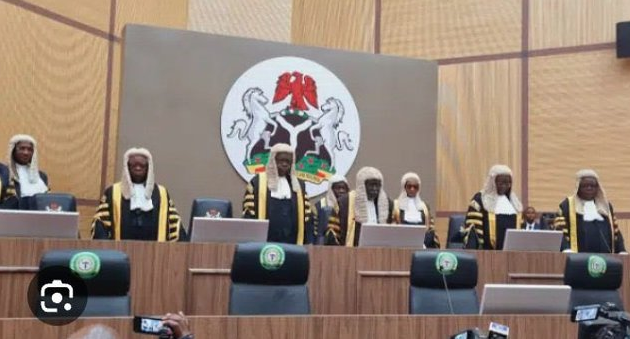‘Continuous judicial intervention in electoral process recipe for voter apathy’
An expert in constitutional law and justice, Professor Sambo Abdulfatai, has warned that the continuous intervention of the court in the country’s “electoral process will lead to voter apathy”. Furthermore, the practice, he noted, though has some advantages, places grave risk and burden on the electoral process. He spoke to our correspondent at the side-line […]

An expert in constitutional law and justice, Professor Sambo Abdulfatai, has warned that the continuous intervention of the court in the country’s “electoral process will lead to voter apathy”.
Furthermore, the practice, he noted, though has some advantages, places grave risk and burden on the electoral process.
He spoke to our correspondent at the side-line of a public function held in Ilọrin on Monday.
According to him, intervention of the court electoral process has prevented abuse of political offices, and brought about constitutional sanctity and stability in our democratic system. However, in spite of all these advantages, he said the development is very risky.
Kano: NNPP supporters observe fasting, prayers as S’Court reserves judgment
Foundation seeks justice, medical aid for victims of kidney harvest
“It may cause judicial error, financial inducement/bribery, unnecessary and avoidable burden on the judiciary in terms of the number of cases that will appear before the court. And we know that the judiciary is not trained in the art of politics.
“The Supreme Court is yet to determine the case of the governorship tussle in Kano State. Perhaps the apex court has been trying to consider the pros and cons or risk that will happen either way.
“This development will lead to voter apathy; politicians will believe they don’t need commitment to democratic principles to win an election or give dividends of democracy to the people but prefer to bribe the judges. At the end of the day, the citizens will not have anything to do with politics again,” he submitted.
Sambo added that “While there are a lot of advantages, implications and merits to continuous judicial intervention, if not well managed, the associated risks are very enormous.
